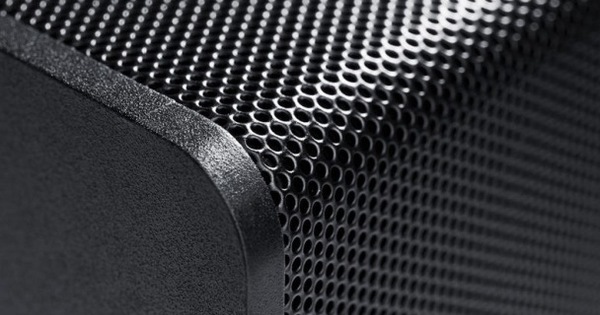Despite Microsoft's marketing department saying time and again that Windows 10 is "the most secure Windows ever", the operating system is still vulnerable to malware. Installing additional protection is therefore still necessary. But what is the best virus scanner? And can you suffice with just an antivirus program or is more still safer? In this article, we'll go back to the basics to answer this question.
 Safer online with the whole family October 20, 2020 08:10
Safer online with the whole family October 20, 2020 08:10  This is how you find out if you are the victim of malware 13 July 2020 13:07
This is how you find out if you are the victim of malware 13 July 2020 13:07  How to make a live rescue stick 24 February 2020 13:02
How to make a live rescue stick 24 February 2020 13:02
Want to know more about online safety? On this page we collect all articles on this theme for you.
Microsoft has been investing in making its products more secure for years. There are indeed important new security features in Windows 10. Perhaps the most important is virtualization-based security (vbs). Vbs uses the virtualization technique in the processor to separate critical parts of the operating system from each other. This makes it less easy for malware to take full control of the PC when it manages to get on the computer. Another new technology is SmartScreen: a Microsoft cloud service that checks the reputation of websites and downloads to fight phishing and malware.
Safer but not yet safe
So while Windows 10 is certainly more secure, that doesn't mean it's also secure. The main reason for that is Windows Defender, Microsoft's real-time antivirus program that is always present and turns itself on when no other antivirus program is installed. The problem with Windows Defender is that it is not good enough. Performance is at best mediocre at both recognizing and removing malware, as proven time and again by the tests of renowned antivirus researchers such as AV-Test and AV-Comparatives.

A major reason is that Windows Defender relies almost entirely on virus signatures to recognize malware. A virus signature is part of the program code of a virus, by which an antivirus program can recognize the malware. Viruses have become smarter and use an arsenal of techniques to prevent recognition. For example, a virus continuously changes its own program code or encrypts itself. Windows Defender still has insufficient answers to these techniques, so that malware still has free rein again. According to experts such as Andres Marx of the antivirus testing lab AV-Test, Windows Defender is mainly suitable "as a basic security solution, but it is insufficient when you shop online and make payments".
Whether Windows Defender will ever be good enough to make other antivirus programs obsolete, we don't know, of course. Microsoft does have a better version of Windows Defender that makes much more use of cloud technology and behavioral recognition to detect malware. But that Windows Defender Advanced Threat Protection (ATP) only sells it to companies for now. Plans to also make this product available to consumers are unknown – at least at Microsoft Netherlands.

“Uniformity does not make the PC more secure”
Despite its mediocre performance, according to Andreas Marx of the independent antivirus lab AV-Test, Windows Defender still has a significant impact on the latest malwares. “Windows Defender has become the primary target of virus creators. The criminals are now tinkering until their malware is at least not recognized by Windows Defender.” According to Marx, this is also an important reason not to rely on the security of Windows Defender en masse. “It is much easier for a virus maker to make itself invisible to one program than to several. Therefore, Windows does not become more secure when everyone uses the same antivirus software. The unpredictability of which antivirus software is on a PC makes it more difficult for virus creators to breach security.”

What extra security is needed?
As with all previous versions of the operating system, it is therefore also necessary to install an additional security program with Windows 10. The offer is great. Not only are there many suppliers, almost every supplier also offers several variants of a security package for Windows. Broadly speaking, there are four variants. Sometimes there is a free antivirus program, there is always a paid antivirus program, usually a more extensive Internet Security and sometimes an even more extensive package that is often called something like Total Security, Total Protection or LiveSafe.
For years, the "real firewall" was the main argument for not choosing "just" an antivirus program, but wanting a whole security package. With Windows 10, the need for this has diminished again. Windows Firewall offers good security and sufficient functionality, and also requires little attention. For example, the firewall distinguishes between private and public networks, and is smart enough to always treat an unsecured WiFi network as public, even if it is your own WiFi network.
More extras
And what's true for the firewall is increasingly true for anti-spam, parental controls, anti-phishing browser extensions, password manager, and backup. All functions that can be useful and contribute to total security, but for which there are increasingly good alternatives. From Windows itself, or from other manufacturers. In addition, they are sometimes clearly better than what you get from the antivirus maker. There is also a major disadvantage of purchasing these extras in combination with your antivirus software: you can no longer switch so easily. A separate backup program or a separate password manager gives you the freedom to always choose a different program. And vice versa: when you want to change your antivirus package, you don't suddenly lose your saved passwords and your trusted backup tool. Is there no advantage in an Internet Security package or an even larger security package? Yes, it can be an inexpensive choice or a great continuation of an existing subscription.

Windows Defender for extra security
Windows Defender may not be the best security guard, but you can use it to occasionally check your PC for malware. For this it is necessary that you first install another antivirus program. Only then can you have the option Limited periodic scanning switch. You can also do the same with, for example, Malwarebytes, a non-real-time scanner that can also be used alongside other antivirus software.
 Safer online with the whole family October 20, 2020 08:10
Safer online with the whole family October 20, 2020 08:10  This is how you find out if you are the victim of malware 13 July 2020 13:07
This is how you find out if you are the victim of malware 13 July 2020 13:07  How to make a live rescue stick 24 February 2020 13:02
How to make a live rescue stick 24 February 2020 13:02 
